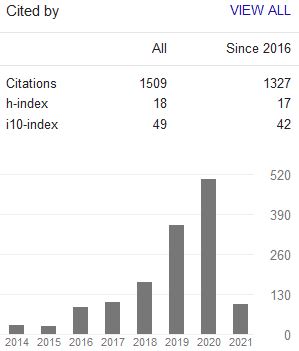الاسلام الشعبي دراسة عن معنى إقامة شعائر دورات الحياة وزيارة مقابرالأولياء عند جماعة جمعيّة نهضة العلماء في منطقة وارو جاوا الشرقيّة أندونيسيا
Abstract
This paper deals with two practices of popular Islam (the rites of passage and the visit to the tomb of the saints) in Waru, East Java by the community of Nahdlatul Ulama (NU). It is an attempt to understand the genuine meaning of those practices by studying the factors that may trigger their rise, and also by investigating the conceptual categorization of modernity in relation to religion and its traditions. The paper exposes three variants of Muslims. The first is the reformist NU which tends to reject the practices on ground that they are forms of bid’ah. The second is the normative NU, which believes that these practices are not bid’ah because they have their legitimate and normative foundation in Islam. The third is the traditionalist-syncretistic NU, which holds the belief that those practices are passed down from forefathers and must therefore be preserved. This last group practices these rites without any association whatsoever with the idea of bid’ah.
Keywords
Popular Islam; reformist NU; normative NU; traditionalist-syncretistic NU; bid’ah
Full Text:
PDFDOI: 10.15642/JIIS.2009.3.1.197-210
Refbacks
- There are currently no refbacks.
Indexed by:
Journal of Indonesian Islam (ISSN 1978-6301 and E-ISSN 2355-6994) is published by the Postgraduate Program (PPs) and the Institute for the Study of Religion and Society (LSAS), State Islamic University (UIN) of Sunan Ampel Surabaya.
Journal of Indonesian Islam by http://jiis.uinsby.ac.id/index.php/JIIs/index is licensed under a Creative Commons Attribution-ShareAlike 4.0 International License.
Copyright ©2020 State Islamic University (UIN) of Sunan Ampel Surabaya. Powered by Public Knowledge Project OJS.







